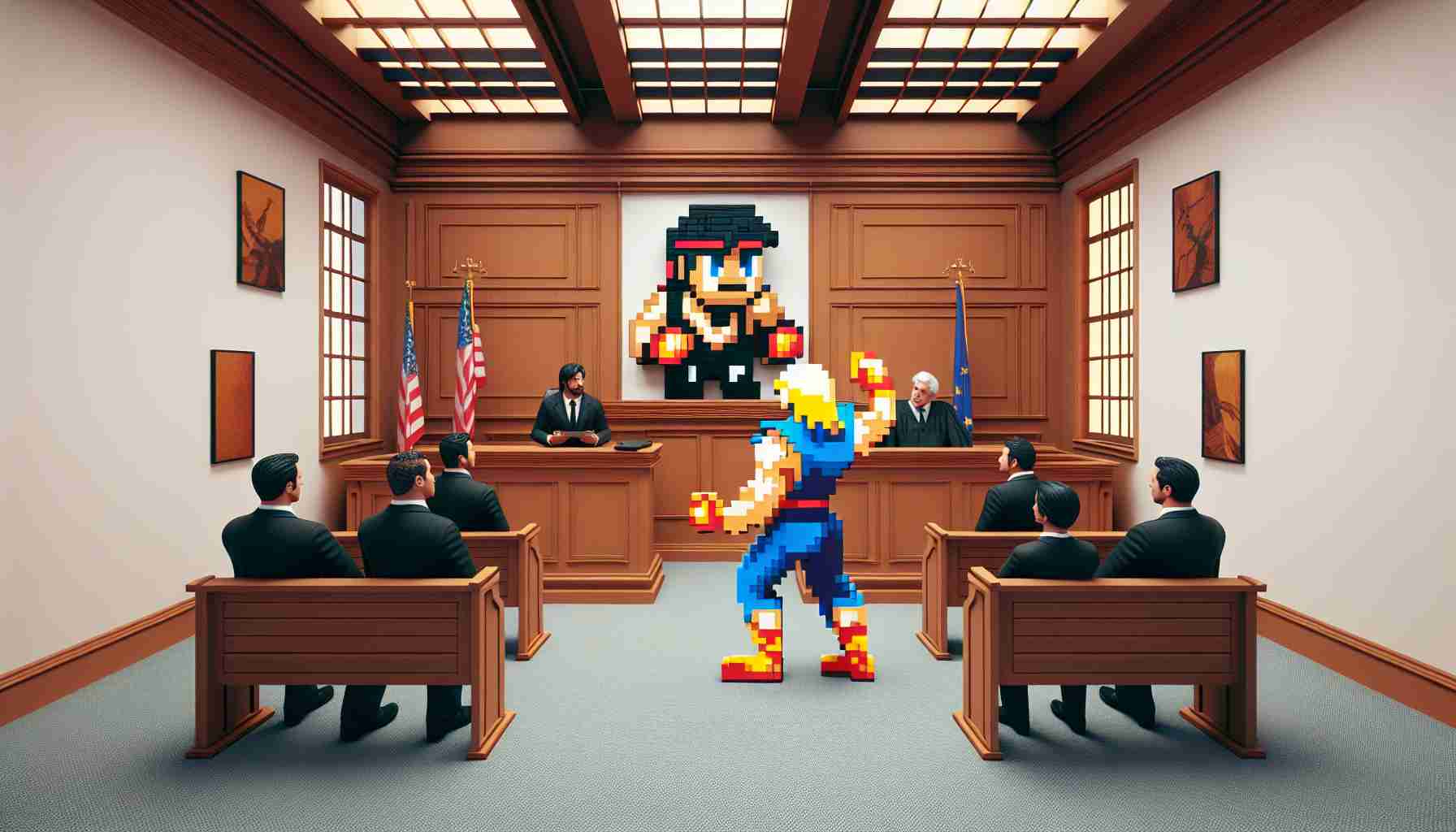In a landmark case of the mid-90s, two gaming giants clashed in court over allegations of imitation and creativity. In 1994, Capcom U.S.A. Inc. took legal action against Data East Corp., claiming that their beloved characters from Street Fighter 2 had been unlawfully replicated in Data East’s Fighter’s History. The lawsuit sought an astonishing 623 million yen in damages.
The crux of Capcom’s argument involved a striking resemblance between several characters from both games. They pointed to similarities not just in name but also in design and fighting style, identifying key fighters like Guile and Ryu, who allegedly bore a striking resemblance to characters like Matlok and Makoto in the rival game.
Interestingly, a video surfaced during the trial that showcased elements of the case. This footage highlighted the peculiar ways in which Data East seemingly took inspiration from Capcom’s creations, even showing how characters adapted certain combat mechanics.
Despite the compelling evidence presented by Capcom, the verdict did not favor them. The presiding judge, William H. Orrick Jr., concluded that the similarities were too generic, which led to an unexpected defeat for Capcom. This decision opened discussions about the boundaries of inspiration and creation within the gaming industry, forever changing the landscape of copyright discussions.
As the gaming world closely monitored this dramatic case, it represented a significant moment in the ongoing battle between originality and imitation.
Tips, Life Hacks, and Interesting Facts Inspired by the Capcom vs. Data East Case
The legal clash between Capcom and Data East regarding character design and originality in video games serves as a fascinating backdrop for understanding creativity and intellectual property today. Here, we explore some tips, life hacks, and interesting facts that not only relate to this case but can also enhance your engagement with gaming and creativity in general.
1. Understand Copyright and Fair Use:
Knowing the basics of copyright law can help you navigate the creative landscape, whether you’re a game developer, artist, or simply a fan. Familiarize yourself with what constitutes fair use. This can guide your understanding of how much inspiration can be drawn from existing works without crossing the line into imitation.
2. Embrace Unique Creativity:
While it’s tempting to take inspiration from successful games or characters, strive to inject your own unique elements into your creations. Think about how you can combine different genres or styles to create something that resonates with your audience while remaining distinct.
3. Prototype New Ideas:
If you’re developing a game or concept, be encouraged to prototype different ideas quickly. Use tools like Unity or GameMaker Studio to test out gameplay mechanics or character designs. This iterative process can lead to innovative solutions that avoid the pitfalls of imitation.
4. Study Successful Cases:
Take time to analyze landmark legal cases in gaming and other creative fields. Understanding the outcomes, like the Capcom vs. Data East case, can provide insights into what is considered acceptable influence versus unwarranted replication.
5. Participate in Game Jams:
Engage in game development contests such as Global Game Jam or Ludum Dare. These events encourage originality and allow you to collaborate with others, which can foster a creative environment, preventing unintentional plagiarism.
Interesting Fact:
Did you know that the video game industry now generates more revenue than the film and music industries combined? The evolution of digital rights has been a crucial topic, especially as the boundaries of inspiration continue to blur.
6. Create a Mood Board:
When brainstorming for a new project, create a mood board using platforms like Pinterest. Collect visuals, color palettes, and styles that inspire you, ensuring that you have a reference that is uniquely your own.
7. Foster a Community:
Join online forums or social media groups related to game development. Platforms such as Reddit and Discord have vibrant communities where you can share ideas and seek feedback, ensuring your work walks the line of originality.
8. Keep Learning:
Take advantage of online resources and courses that can improve your skills and understanding of game design. Websites like Coursera and Udemy offer various courses that can help you stay updated on the latest trends and techniques in gaming.
Conclusion:
The Capcom vs. Data East case serves as a crucial lesson about the balance between inspiration and imitation in creative fields. By being aware of copyright laws, fostering unique creativity, and engaging with the community, you can navigate the world of gaming with a renewed perspective. Remember, original ideas come from a unique blend of influences, but it’s your unique voice that will truly stand out.


















